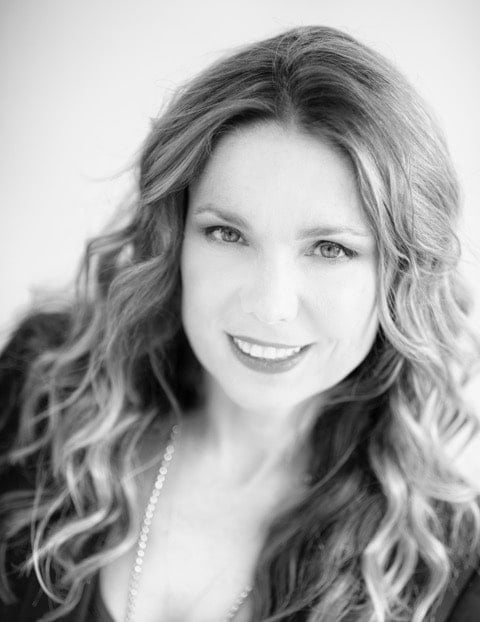

The Messenger
I sometimes think of what future historians will say of us. A single sentence will suffice for modern man: he fornicated and read the papers. Albert Camus. The Fall
Chapter one
SAINT-DENIS, ZONE 3 & PARIS 15ème 2018
‘Are you going to answer me?’ my parole officer asks, her head on one side, brow heavy. I glance around the flat—dishes piled up in the sink, unmade bed. From behind a flimsy door the loamy stench of bad plumbing. What have I got to lose? I stare back. Her brown eyes strain against mine, willing me to persuade her that I wasn’t in Paris yesterday.
‘No comment.’ She rolls her eyes. ‘You’re not under arrest.’
My throat contracts and I look out of the window. Saturated clothes strung out along the balconies of the tower block opposite, and satellite dishes tilt towards us like cupped ears. Wind lashes rain against the window, forcing it into horizontal streaks. The drops race like tadpoles, leaving wet trails on the glass.
She sighs. ‘Let’s go through it again. Lisa Dallet says she saw you at a café near her apartment.’
I shrug. ‘Are you denying it?’ ‘Denying what?’ ‘You know you mustn’t contact her.’ I nod. ‘Or stalk her.’ ‘I wasn’t stalking her.’ ‘No?’ ‘I was here all night,’ I say.
‘I didn’t say it was night-time.’ She leans back, smiling. ‘You’re a bad liar, Lucas.’
For a while we say nothing, just listen to the whining drone of rush hour traffic on the autoroute below. She goes over and pours a glass of water from the kitchen tap.
‘You’ll be on CCTV. There are cameras at the stations, on all the main roads, probably right outside her house. They’re everywhere now.’ She puts the glass in front of me.
I take a sip.
‘I could also track your cell.’ She places her hand on my phone, gives the screen two hollow raps with her fingernail. I reach over to snatch it away and she grabs my wrist. ‘You need to be straight with me. I can’t help you otherwise.’ She releases my hand. ‘This is a warning, Lucas. You do anything stupid and I’ll have to tag you, put you under curfew. Things are tighter now since the state of emergency. I have fewer options.’ She bags up my urine sample, puts it in her satchel and takes out a piece of paper. ‘You asked for this.’
‘I’m not a terrorist.’
She slides her coat off the chair and for a second her eyes say: No, you’re worse than that.
I smooth the paper on the table. ‘I didn’t kill my father.’ She nods. ‘Just stick to your parole conditions. If you breach those, you’ll
be back at Fleury-Mérogis where no one cares what you are.’ She walks to the door then turns. ‘Do you have any reason to be in Zone
One?’ I shrug. ‘No.’
‘Then just stay out of there.’
I stare at the door until her footsteps recede then look at the picture in front of me. They have used an old photo of my father and me. It’s the same one the papers used after the trial, the one my aunt had taken the previous summer. The top half of my face is a pixelated blur because I was a minor then, but you can still tell it’s me. In the picture my father’s tanned face beams into the sun, his expression relaxed and self-assured, as though he had just said something he thought was clever. He has an arm slung over my shoulders and he has drawn himself up to his full height so that he has maybe half an inch on me. It’s a
country club kind of pose—both of us looking as though we had just stepped off a tennis court, as if we had just played a match that he’d won. It is the sort of picture that under different circumstances you would use as a Christmas card.
I look at it for a while, fold it carefully into my jacket pocket, and leave the flat.
The quickest way into Zone One is on the high-speed commuter train. The tracks feed into tunnels at Saint-Denis and fan out at the Gare du Nord like frayed wire. I take a backwards-facing seat and scan the station. The train lurches, the platform reducing to a sliver of grey concrete then it’s gone. I never used to like travelling backwards, but I like it now. These days I’m more focused on where I’ve been than where I’m headed. The train gathers pace in the tunnel and I feel a rush of vertigo, receding fast towards something unknown.
The journey takes seven and a half minutes, passing under the Boulevard Périphérique—the ring road that slashes around Paris like a blade, severing the city from the suburbs. From the window I make out the blue haze of vehicles backed up in both directions on the slip roads and underpasses. The Peri is built along the shadow line of the old city wall that once defended Paris from barbarian hordes. Today it performs much the same function—eight-lanes of gridlocked traffic keep the suburban riffraff from tarnishing the glittering centre better than any barricade.
A man gets on at the next station and sits next to me. He stinks of fast food and wears dark, wraparound shades even though it’s raining outside. He looks at me like he knows me, and the skin on my forearm bristles. I adjust my position on the armrest so we don’t touch and I feel the muscles in my neck tighten.
I get up to change seats and my legs scrape his knee. His shaded gaze follows me across the aisle and he leans over holding a roll-up, wanting a light. I ignore him and look out of the rain-streaked window. Yellow bulkhead lights flash by, illuminating blurred graffiti on the walls of the tunnel. I close my eyes, feeling the vibrations in the pit of my stomach.
The train emerges from the tunnel and I glance over to the man, but he’s gone. The tug of brakes then the train slows, screeching over sidings as it shunts into the Gare du Nord. I leap over the ticket barriers and make my way to the station at École Militaire.
Elena Landis lives in a tall apartment building that flanks the Champ de Mars. I stand outside, scrolling through my phone like a lost tourist. A few people leave the building and then an old lady comes out. She hesitates at the doorway looking up at the sky, her dog straining at the leash. A courier arrives and checks his device, pecking out the code on the keypad. I wait until the woman leaves, then tap in the same numbers, enter the large, wood-paneled lobby, and scroll through the entry phone for Landis.
‘Yes?’ ‘It’s me, Lucas.’
There is crackling over the phone then silence as she hangs up. I press the buzzer again. No answer, so I hold it down longer this time. After a few seconds the lock releases on the heavy iron door. The pungent smell of wood polish grows stronger as I walk up four carpeted flights to a large landing. The middle door is ajar, chain on. She asks whether I am alone before closing the door and opening it again.
She steps out and at first, I don’t recognize her—she is so thin, her skin papery, almost transparent. She must be nearly seventy, the same age my father would have been now, but she looks older than that.
‘I told you I couldn’t help,’ she says, keeping her hand on the door. ‘Elena—’ ‘I’m sorry, Lucas, I really have nothing to say.’ I step forward. ‘Just a few minutes. Please.’
She sighs and stands back stiffly to let me in instead of leaning forward to kiss me on the cheek as she has done all my life. She puts my backpack on a coat hook and leads me down a wide parquet corridor to a triple-room salon. She gestures towards a pale, silk-covered sofa and turns her back, taking a cup and saucer from a tall glass cabinet. The dye she uses on her hair has stained her scalp the colour of nicotine and damp wisps cling to her nape.
‘I didn’t really expect you to be here. You said you were going away,’ I say. ‘I leave tomorrow.’ ‘Is it for work?’ ‘No, I stopped all that years ago.’ She pours coffee from a silver jug and hands it to me before taking a seat opposite. ‘I’m visiting Nathan.’ I’m glad for the opportunity to ask after her son who used to be a friend of
mine. She answers quietly, giving few details then our conversation falters. It’s her turn now to ask about me, but she lets those questions hang in the air. I guess she isn’t that interested, or just doesn’t want to know. I glance out of the window.
Her apartment is so close to the Eiffel Tower that it feels as if we are perched on one of its pedestals and the massive grey carcass dominates the window like a cage.
She looks at her watch. ‘Why don’t you tell me why you’re here, Lucas? What do you want?’
‘I want to ask you about my father.’ She nods, taking a sip of coffee. ‘Go on.’ ‘What did he tell you about his work? Do you know what he was working on before he died?’ Her expression shuts down and she looks tight-faced and old. Dusty
afternoon light filters through the high windows, emphasising the shadows under her eyes. The bitter coffee contracts my throat and I’m suddenly sure that coming to see her is a mistake.
‘I have no idea,’ she says, looking away. ‘Your father and I weren’t that close before he died.’
‘Really? She shakes her head. ‘I thought you were. Weren’t you?’ My voice catches and the questions backfire. I imagined approaching this slowly, teasing out the details like a professional interrogator—firm-voiced and steady-eyed, but it isn’t happening that way. My inquiries slip, lacking traction then they slide back into a void. I feel like a bungling cop.
‘We were very close once, but that was many years ago.’ She puts down her cup abruptly, the noise like an exclamation. ‘You know all that, Lucas, surely. Why do you want to rake over it now?’
‘What about Patrick? Did he know—’
‘My affair with your father was over long before I married Patrick. And yes, of course he knew about it!’ She sounds prudish and defensive now, like a convent girl who has just spoken back to the Mother Superior.
‘No, I don’t mean that. Did Patrick know what my father was investigating?’
There is a pause and she shakes her head. ‘No. Why would he? Neither of us knew much about what Gérard was doing. We hardly saw him in those last months.’
We have reached difficult ground and I’m not sure how to navigate. When we first talked on the phone, she told me that her husband had died. They dredged his body out of a canal near Ivry about nine months ago. Although it didn’t receive much press, I read about it in prison shortly after it happened. Everyone blamed his job as a war correspondent—South America, Afghanistan, then Iraq, Libya, with no real break in between. After twenty years on the front line, it had all become too much. He was working out of concrete bunkers next to airfields, his informants blown up or beheaded. Patrick could handle that, she had told me, but he couldn’t deal with a desk job at the Reuters office in Paris.
‘Who could I ask about it?’ ‘Ask about what, Lucas? What exactly is this all about?’ I look away towards the glass cabinet. It is packed with small wooden figures carefully arranged in rural scenes. Miniature farmers lean against tiny bales of real hay, playing flutes to their sheep and goats. On the bottom shelf families of gypsies spill out of caravans and cook over fires, while others weave baskets and chop wood. The vibrant displays are a distracting contrast to the gloominess of the apartment. ‘I’m trying to piece together all of the things that happened before he died—who he saw, what he was working on. I want to know who really killed him.’
She stares at me. ‘You always said it was Sami. You said that in court. Why this sudden change?’
I take the paper from my pocket and smooth it on the coffee table. The veined marble top is cool beneath my fingers as I push it slowly towards her.
She stands, resting her hand on my shoulder a moment before walking to the windows. Although the article was from an obscure blog, it was clear that she had seen it.
‘You can find a conspiracy theory on the Internet for just about anything, especially where journalists are involved,’ Elena says, taking a cigarette from a packet on the side table then opening the tall windows a crack. They move on their hinges in the breeze, reflections rippling over watery glass as she stands with her back to me smoking, her silhouette very straight and still.
‘Patrick wanted to see you,’ she says after a while, holding the cigarette packet out towards me. I shake my head and she turns to the window. ‘I know he would want me to tell you that. He didn’t believe that either you or Sami killed your father.’
‘I know. He made that clear at the trial.’ The memory of Patrick’s support back then emboldens me. ‘And you?’ I mutter. ‘Do you still think I did it?’
‘I never thought you were guilty. Do you think you’d be in my apartment if I thought that? But I know that you weren’t entirely innocent either. You were fifteen! My God, Lucas.’ She turns to me with a ravaged look as if the idea has only just occurred to her. I look at my hands, clasped together now between my knees. ‘I told Patrick that I didn’t want to have anything to do with you. I said that you were a bad influence.’ She speaks quietly and I have to strain to hear her voice over a wailing siren.
I think of telling her that Patrick had visited me in jail several times, including twice in the month before he died, and that it was Patrick who had given me these ideas. ‘If he wanted to see me he could have.’
‘No he wouldn’t. I forbade him,’ she says, raising her voice.
‘Forbade him?’ I blurt out. The idea strikes me as absurd and I nearly laugh. Then I feel a surge of anger. I want to puncture her self-righteousness, let her know that her husband had disobeyed her, that he had visited me in prison, but something in her tone stops me.
‘I banned Patrick and Nathan from seeing you.’
There is a silence while she stares out of the window. ‘Patrick always believed in you—and Gérard too for that matter, despite everything. He was loyal until the end.’ Her voice is distant and mechanical as if she is lost in thought, then she laughs unpleasantly and turns to face me, forcing a smile. ‘Sorry, Lucas. I’m not much help am I? Since Patrick’s death, I’m not sure—’ She pauses. ‘I can’t remember things so well anymore. It’s all been so awful, so confusing.’
She shakes her head as if to erase a thought and takes a drag, blowing the smoke out through the crack in the window.
‘I’m sorry.’ ‘As for your question, I have no idea who would know what Gérard was working on back then.’ ‘If you think of—’
She turns sharply, her mouth twisted in disgust. ‘You can’t expect to learn anything from dredging up the past, Lucas. Most people can barely remember what they did last night, let alone what happened more than ten years ago.’
‘Seven.’
‘Seven years, ten years—what’s the difference? People can’t remember or they just don’t want to talk about it. And even if they do remember—‘ She stifles a laugh. ‘—most people just don’t care.’
‘I can remember,’ I say, irritated to be getting a lecture on memory from someone who by her own admission couldn’t remember, who didn’t even seem to know what she thought. Old people forget so many things. They’re like hollowed out trees, gutless and empty, and their memories are just as withered.
She grinds the cigarette into an ashtray. ‘That’s different. I doubt whether you’ll ever forget.’ Her eyes glisten and she looks at her watch. ‘You must excuse me now,’ she says, walking to the door.
She hands me my backpack. I see the coarse silver roots of the dark hair around her temples and smell her stale cigarette breath as she kisses me drily on each cheek and says goodbye.
Chapter two
PARIS, ST GERMAIN
SEPTEMBER 2010
Although I remember every detail of the night my father died, I can’t recall what it was about him that used to piss me off so much. I think it’s because I can’t nail it down to just one thing. Sometimes it was his arrogant manner and the pompous way he spoke, as if there were someone nearby taking notes, ready to quote him. Other times it was the way he looked at me—the way a clump of his oily grey hair hung over his glasses as he stared at me like I was some kind of philosophical question or puzzle to be solved.
In fact, his looks bothered me. I was grateful I hadn’t inherited his worst features, but these things are never guaranteed. His eyes were sludgy green, normally murky and impenetrable, but occasionally they would clear and then they’d drill right through me. As for the rest of him, I only looked at him closely when he was asleep—slumped in his study armchair, or passed out on the couch in front of the TV. Then I would scan his face, staking out the worst of it, while tracing my own for similarities. I hoped my jaw wouldn’t take on that stubborn, square set, and I had to watch out for the onset of blubbery chins. I checked my nostrils daily for traces of the same wiry hairs that sprouted from his puffy and bloodshot nose. He had a beak that reared up on his face like a battle-hardened soldier, virile and ripe to bursting while everything else lay sagging and defeated.
My father liked to walk around the apartment naked, often barging in on me while I was having a bath. At such moments my face would be at the exact height of his groin, so I had to make a real effort not to look there. If I looked away, he would know I was embarrassed, so I just stared straight ahead over my feet, towards the wall. I knew this annoyed him because he would move so he was directly in my line of sight and carry on talking. Stepping out of the shower, he would pause to lecture me, hand on the towel rail, water streaming down his body and running off his cock like piss. Or, if he were brushing his teeth, he would nag me through a mouth rimmed with toothpaste, spitting white foam into the air like some kind of fanatical preacher. To acknowledge him was to give in, so most of the time I just sat there staring ahead as he droned on. The topic? It was always my shortcomings.
And so it was one Friday morning, six months after we had moved back to Paris from the US. It was early September and school had just started up again after the long summer holidays. I was in the bath, soaking the eczema that blazed along my arms and legs, and he had just stepped out of the shower, all freshly scrubbed and in the mood for a back-to-school pep talk.
‘You need to work much harder this year, Lucas, for le prepa,’ he said, running a towel between his legs like a length of rope.
He would usually start this way, adopting a tone that sounded fatherly enough but you never knew where he would end up. It was like listening to the slow hiss of a valve somewhere.
‘For once your mother agrees with me.’ He arranged the towel on the rail and sauntered over to the sink. ‘Don’t forget she’s collecting you after school today,’ he said, pointing at me as he walked past.
I waited until he squared up to the basin. ‘You didn’t,’ I said. ‘What?’ ‘You didn’t do any of that when you were my age. University, the ‘bac.’ He squeezed a line of toothpaste onto his brush and carried on in a chatty,
upbeat tone like he was being interviewed. ‘You’re right. I didn’t. That’s because I never had the chance, unlike you. You’ll regret it, you know, if you don’t go to a good university.’ He punctuated the air with his toothbrush and looked back at me in the mirror.
Even though he hadn’t gone to university until he was much older, my father refused to admit it hadn’t held him back. He liked to give the impression that he had scaled massive odds to get where he was but as far as I could tell, it was an advantage for him not to have wasted time at university when he was young. It meant he hadn’t been part of the elite from the beginning and this gave him something to prove, someone to expose, or some point to make. But he didn’t see it that way. He just saw me pissing away the chances he never had.
‘There aren’t any jobs, Dad. University’s no guarantee. Not anymore.’
The bath had cooled, so I leant forward to the hot tap. He gargled and spat into the sink, reached for the hand towel and walked over to the side of the bath, wiping his mouth as he looked down. ‘It’s not about a guarantee, Lucas. It’s about minimising the fucking risks.’
He put a foot up on the bath as he towelled between his toes, then his nuts. ‘Christ, your eczema’s bad,’ he said, peering into the oily bath.
A wave of irritation burned along my neck and arms. I leant back, partly to distance myself from the turkey gizzard at his crotch, but mostly to give the impression that I didn’t care. ‘Anyway, what’s a good university?’
‘What?’ ‘A good university. What’s that?’ ‘Lucas, come on.’ He draped the towel over his knee. ‘All right, say I go to a good university, whatever that is. What then?’ I turned my head slowly, my eyes following a shaft of light from the high window that lit up half his face. His mouth twitched and one sunlit eye glinted like a beacon. ‘Become an academic like you?’ I looked back out over my feet. ‘Help kids rack up qualifications for non-existent jobs? Or maybe I could try journalism and report on the job shortage?’ Academia seemed pointless enough, but journalism—what a fucking waste of time. He was both of these things.
He started towelling hard up around the back of his head. It made his lips vibrate. ‘You don’t have to follow me. I simply want you to have an interest in something other than your computer. Is that too unreasonable? It’s not as though you—’
I drew my knees up and slid back, submerging my ears. Water from the tap pummelled the bath and drowned out his voice. I lay there watching his mouth forming words I couldn’t hear. Releasing the air from my lungs, I sank down beneath the waterline. His hazy outline shimmied over the end of the bath.
A hand gripped my shoulder and I came up spluttering.
‘Don’t ignore me when I’m speaking to you!’ His steaming pink face was inches from mine. He released me, stepping back, still glaring. ‘We’ll discuss this when you return on Monday.’
I didn’t answer, just slid back again beneath the water. The colours blurred and faded and then disappeared like a cloud on the horizon.







